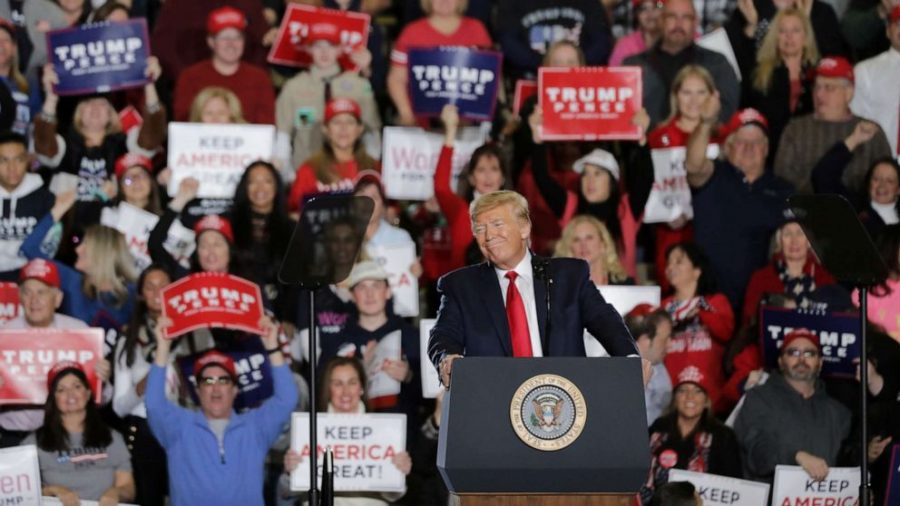Trump’s To-Do List for November Includes Reaching Wary Voters
February 10, 2020
Back in December, President Trump joined an exclusive list when he became only the third president in American history to be impeached. Come November, he will attempt to be the first to ever win a re-election post-impeachment.
In the four days since the senate’s historic decision, the President has been running his victory lap, continuing to claim that the entire impeachment process was a partisan effort to simply remove him from office over crimes he is innocent of.
It’s hard to tell exactly, based on his impeachment, where Trump stands with regards to his re-election in nine months. Like many things over the course of his tenure, there is no historical precedent for it. What may be working for him, however, is that Trump’s approval rating currently sits around 49%, which would be the highest it has ever been since he took office over three years ago.
Trump’s acquittal, which was in fact almost strictly partisan (with the exception of Sen. Mitt Romney R-UT) may be playing right into Trump’s narrative. It is not him who is guilty of anything, he claims, it is the corrupt political machine of the opposing party that is in the wrong. Trump’s all-time high approval rating may be evidence of the fact that some new supporters are rallying around him.
Now, Trump and his re-election committee have set their eyes on November, and have seemingly focused on a broad game plan to secure another win.
Trump’s reelection committee paid for and ran a 60 second Super Bowl commercial, viewed by over 120 million people, that spoke to his commitment to criminal justice reform. It showcased the story of Alice Marie Johnson, a 63-year-old African-American woman whose sentence for a nonviolent drug offense was commuted by President Trump.
Some are suggesting the ad is part of an effort by the president to win the approval of African-American voters, who have overwhelmingly negative views on Trump and his administration.
One fact stands in Trump’s way, however. Since 2017, he has been one of the most divisive presidents in American history. His re-election committee has been tasked with attempting to reign in some of the moderate suburban voters who have slowly been turning democrat since 2016 in some key states that Trump carried his first time around.
With impeachment behind him, the President will have to rely on one of his strongest calling cards, the economy. He will continue to emphasize the improvement of the stock market and employment under his tenure to many who turned away from him and his party in 2018.
While the democratic primaries continue to play out, Trump will continue to energize his staunch base of supporters while making an attempt to reach out beyond lines that he has previously failed to cross.

